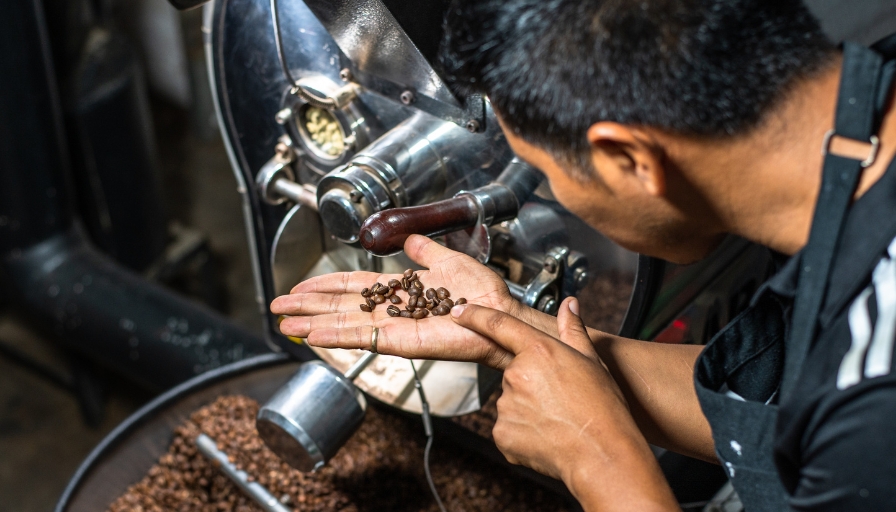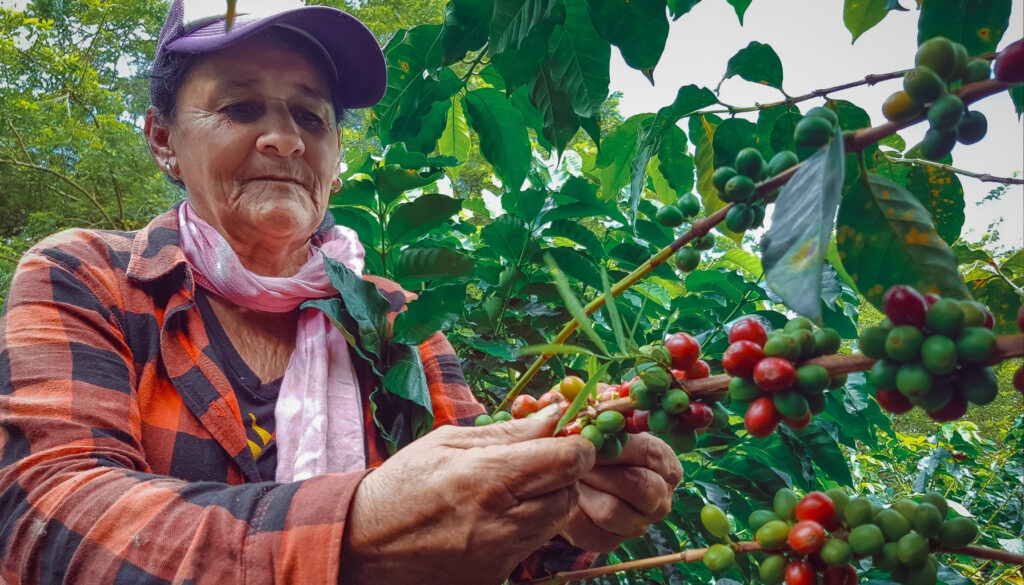In recent years, the coffee culture has blossomed into a multi-faceted landscape filled with diverse flavors, aromas, and enriching experiences. As coffee connoisseurs, we seek not only the perfect cup but also the story behind each bean. With this quest, a new trend has emerged: ethical coffee. This article delves into the fascinating world of ethically sourced coffee, examining its profound impact on local communities and our choices as mindful consumers. From fair trade practices to sustainable farming methods, we will explore how indulging in quality coffee can also promote social and environmental responsibility.
1. Understanding Ethical Coffee
Ethical coffee isn’t merely a marketing buzzword; it embodies a commitment to social, economic, and environmental integrity. At its core, ethical coffee prioritizes the well-being of the farmers who cultivate the beans. The term encompasses various practices, including fair trade certification, direct trade arrangements, and organic farming methods. These practices ensure that growers receive a fair price for their produce while fostering environmentally sustainable methods.
When we indulge in ethical coffee, we acknowledge that our choices have repercussions. Supporting fair compensation and sustainable farming techniques promotes a healthier ecosystem and empowers coffee-growing communities. This awareness transforms our coffee-drinking experience into a socially conscious indulgence.
2. The Journey of Coffee from Bean to Cup
To appreciate ethical coffee, one must first understand the journey from bean to cup. The process starts with cultivation on lush coffee farms, where farmers nurture their crops through careful practices. Each step, from planting to processing, impacts the final product. In ethical sourcing, transparency becomes crucial, allowing consumers to trace their coffee back to its roots.
Farmers typically grow coffee beans under shaded canopies, promoting biodiversity. This nurturing environment enhances both the quality of the beans and the resilience of local ecosystems. Once harvested, the beans undergo meticulous processing, which varies significantly across regions. The careful handling of coffee throughout its journey ensures that consumers enjoy the finest flavors while supporting responsible practices.
3. Fair Trade Practices: A Commitment to Equity
Fair trade practices have revolutionized the coffee industry by ensuring that producers receive fair compensation for their labor. By purchasing fair trade coffee, consumers directly contribute to the livelihoods of farmers. This movement began as a response to global trade disparities that left many coffee-growing communities in poverty.
Fair trade certification requires adherence to specific standards, including fair pricing, environmental protection, and community development. As a result, farmers gain better access to resources such as education and healthcare. This not only improves their quality of life but also enhances the quality of the coffee they produce. When coffee enthusiasts choose fair trade options, they engage in a meaningful exchange that benefits growers and fosters a sense of community.
4. The Allure of Direct Trade
While fair trade highlights collective standards, direct trade takes a more personal approach to sourcing. Through direct trade, roasters establish relationships with coffee producers by visiting the farms to ensure quality and ethical practices. This transparency facilitates deeper connections and mutual respect between the producer and the roaster.
Direct trade often results in higher prices for farmers, as roasters can pay above the fair trade minimum when they source exceptional beans. This relationship ultimately promotes quality over quantity, encouraging farmers to invest in their land and processes. For consumers, drinking coffee sourced through direct trade guarantees not only a unique flavor profile but also a compelling story behind every cup.
5. Sustainable Farming Methods
Sustainability goes hand in hand with ethical coffee sourcing. Farmers who practice sustainable agriculture employ methods that preserve natural resources and protect the environment. Techniques such as shade-grown coffee farming, organic practices, and crop diversification all contribute to a healthier ecosystem.
Shade-grown coffee, for instance, supports local wildlife and preserves the biodiversity of the region. By promoting sustainable methods, consumers can enjoy their coffee with peace of mind, knowing they contribute to ecological preservation. The marriage of high-quality coffee and environmental stewardship solidifies ethical coffee as an indulgence with a purpose.
6. The Role of Certifications
Certifications act as a guiding light for consumers navigating the realm of ethical coffee. Various organizations, including Fair Trade International, Rainforest Alliance, and Organic Certifications, provide assurance that coffee meets specific standards. These certifications help consumers make informed choices and support coffee producers committed to ethical practices.
However, navigating the world of certifications may seem overwhelming. Each label encompasses different criteria, emphasizing distinct aspects of sustainability, social equity, and environmental impact. Understanding these certifications empowers consumers to select coffee that aligns with their values.
7. The Impact on Local Communities
Purchasing ethical coffee directly contributes to the prosperity of local communities. When farmers receive fair compensation, they can invest in their families and communities, leading to improvements in education, healthcare, and infrastructure. The positive ripple effects of supporting ethical sourcing extend far beyond the farm.
Moreover, ethical sourcing cultivates pride within communities. Farmers who practice sustainable methods and receive fair wages often become advocates for their regions. They work collaboratively to improve their practices and embrace innovation, ensuring that coffee production remains viable for future generations.
8. The Consumer’s Responsibility
As coffee lovers, we hold the power to make informed choices. By selecting ethical coffee, we not only enhance our drinking experience but also contribute to a more just and sustainable world. Understanding the implications of our choices encourages us to seek out coffee brands that prioritize ethical sourcing.
Additionally, consumers can educate themselves about the companies they support. Researching the background of coffee brands, their sourcing practices, and their partnerships reveals much about their commitment to ethical standards. Choosing to support brands that align with our values amplifies our impact as conscious consumers.
9. Coffee and Climate Change
Coffee production faces significant threats from climate change. Rising temperatures, shifting weather patterns, and increased pest infestations affect both coffee quality and availability. Ethical sourcing includes strategies that address these climate challenges by encouraging sustainable practices that mitigate environmental impact.
Farmers who adopt organic methods and focus on biodiversity can create more resilient ecosystems. Investing in climate-friendly practices not only protects the environment but also ensures that farmers can continue to cultivate high-quality coffee despite adversity. As consumers, supporting brands that prioritize climate resilience showcases our commitment to ethical coffee.
10. The Evolution of Coffee Culture
The coffee culture has undergone a remarkable transformation, shifting from a caffeine-fueled beverage to an art form. Today, coffee enthusiasts seek unique flavors, brewing techniques, and the stories behind their cups. This evolution has created an appreciation for ethical sourcing, enhancing the overall coffee experience.
As we explore the nuances of flavor, the ethical implications of our choices come to the forefront. Sipping a meticulously crafted cup of ethically sourced coffee becomes an act of mindfulness, allowing us to savor both the taste and the positive impact of our decision. The marriage of culture and ethics encourages coffee lovers to embrace a deeper relationship with their beverage.
11. Exploring the Global Coffee Landscape
The world of coffee spans continents, each region producing beans with unique flavors and characteristics. From the lush hillsides of Ethiopia to the volcanic soils of Colombia, diverse climates and cultures shape the coffee we enjoy. Ethical sourcing acknowledges the richness of this landscape while emphasizing the need for responsible practices across borders.
Each region faces distinct challenges, from economic disparities to environmental threats. Supporting ethical coffee gives consumers a chance to contribute to a global movement that values diversity and social equity. By choosing coffee from various regions, we celebrate the uniqueness of global coffee culture while supporting farmers and communities.
12. Coffee Tasting and Flavor Profiles
Engaging with ethically sourced coffee opens the door to a world filled with diverse flavor profiles. Coffee tasting, or cupping, enables enthusiasts to explore the delicate nuances present in different beans. Factors such as altitude, processing methods, and varietal all contribute to the final flavor.
For ethical coffee, these flavor profiles become a testament to responsible sourcing practices. Beans from farms employing sustainable methods or engaging in direct trade often exhibit vibrant flavors that reflect the care taken in their cultivation. As consumers, exploring these flavors enhances our appreciation for the artistry and ethics behind each cup.
13. The Future of Ethical Coffee
The future of ethical coffee looks promising, driven by the growing awareness and demand for responsibly sourced products. More coffee companies are adopting ethical practices, crafting innovative solutions to support farmers and the environment. This shift not only benefits producers but also fosters a culture of sustainability within the coffee industry.
As consumers become more informed, they are likely to reject brands that do not prioritize ethical sourcing. This trend pushes companies to raise their standards and embrace transparency. Ultimately, the pursuit of ethical coffee creates a positive feedback loop, benefiting all stakeholders in the supply chain.
14. Coffee as a Catalyst for Change
Coffee possesses the power to instigate change. It serves as a vehicle for dialogue about social and environmental responsibility, encouraging consumers to engage with the issues facing coffee-producing communities. Coffee events, tastings, and festivals often highlight ethical sourcing, fostering a sense of community among enthusiasts.
In this way, coffee transcends its role as a mere beverage. By supporting ethical sourcing, we participate in a larger movement that embraces social justice and environmental stewardship. This collective effort transforms our love for coffee into a catalyst for meaningful change.
15. Elevating Café Experiences
As the coffee culture evolves, so do our café experiences. Specialty coffee shops increasingly prioritize ethical sourcing, allowing consumers to enjoy their favorite brews while supporting responsible practices. These establishments curate their menus with thoughtful selections of beans, emphasizing quality and sustainability.
Visiting cafés that prioritize ethical coffee fosters a deeper connection with what we consume. It invites us to engage in conversations about sourcing, brewing methods, and the stories behind the coffee. Each visit becomes an opportunity to celebrate not only the beverage but also the community and ethical standards that support it.
16. Brewing Methods that Encourage Ethical Sourcing
The methods we choose for brewing coffee can also impact our overall experience. From pour-over to French press, each technique highlights the unique qualities of ethically sourced coffee. Experimenting with various brewing methods allows us to discover the best way to savor the flavors of our chosen beans.
Certain brewing methods can enhance the nuances of flavor, emphasizing the quality of the beans. Ethical sourcing often yields beans that are distinct and complex, allowing for a richer tasting experience. By choosing sustainable methods, we honor the commitment of farmers and producers while indulging in our passion for coffee.
17. Supporting Local Roasters
In our quest for ethical coffee, supporting local roasters can make a significant impact. Local roasters often prioritize sourcing beans from ethical suppliers and are dedicated to transparency. By nurturing close ties with coffee producers, they create opportunities for collaboration and innovation.
Additionally, local roasters contribute to their communities by providing jobs and fostering a sense of belonging. When we choose to buy from local establishments, we support the entire ecosystem of ethical coffee, from farmers to roasters and beyond. This connection adds a personal touch to our coffee experience.
18. The Role of Education in Ethical Coffee
Educating ourselves about ethical coffee is essential in making informed choices. Understanding the complexities of the coffee industry, including fair trade practices and sustainable farming methods, empowers us to support responsible sourcing. Knowledge equips us to engage in conversations and advocate for ethical practices.
Coffee workshops, tastings, and online courses offer valuable insights into the world of ethical coffee. By participating in educational opportunities, we not only enhance our appreciation for the beverage but also become ambassadors for change. Sharing knowledge with others helps cultivate a community that values ethical standards.
19. The Intersection of Technology and Ethical Sourcing
Technology is reshaping the coffee industry by enhancing transparency and efficiency in ethical sourcing. Innovations like blockchain technology provide traceability, allowing consumers to see the journey of their coffee from farm to cup. These advancements create accountability within the supply chain, holding producers and buyers to higher standards.
Moreover, technology aids farmers in adopting sustainable practices. Data-driven solutions enable them to make informed decisions regarding cultivation, pest control, and resource management. The intersection of technology and ethical sourcing opens up new avenues for collaboration and innovation.
20. The Personal Journey Towards Ethical Coffee
Ultimately, the journey toward ethical coffee is a personal one. Each individual’s values, preferences, and awareness shape their choices. By embracing ethical sourcing, we contribute to a movement that prioritizes social and environmental responsibility while indulging in the pleasures of quality coffee.
As we explore the world of coffee, we encourage others to join us on this journey. By sharing stories, advocating for responsible practices, and supporting ethical brands, we can create a community united by a passion for coffee and a commitment to making a difference. Together, we can sip with purpose and savor the rich flavors of ethical coffee.
In conclusion, ethical coffee represents a significant shift in our approach to one of the world’s most beloved beverages. By understanding its implications, exploring its various facets, and making informed choices, we can contribute positively to coffee-growing communities and the environment. As we indulge in the art of coffee tasting and appreciate the craftsmanship behind each cup, we can do so with a conscience. Let us embrace the beauty of ethical coffee and savor the exquisite flavors it brings to our lives.


